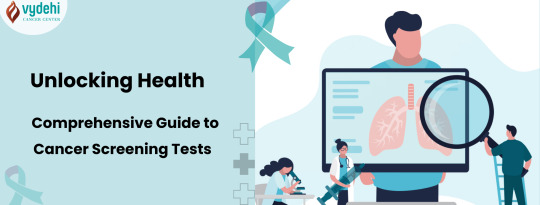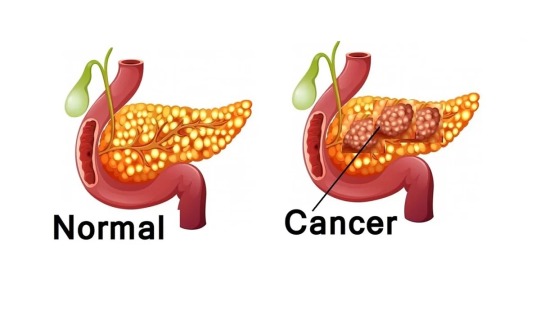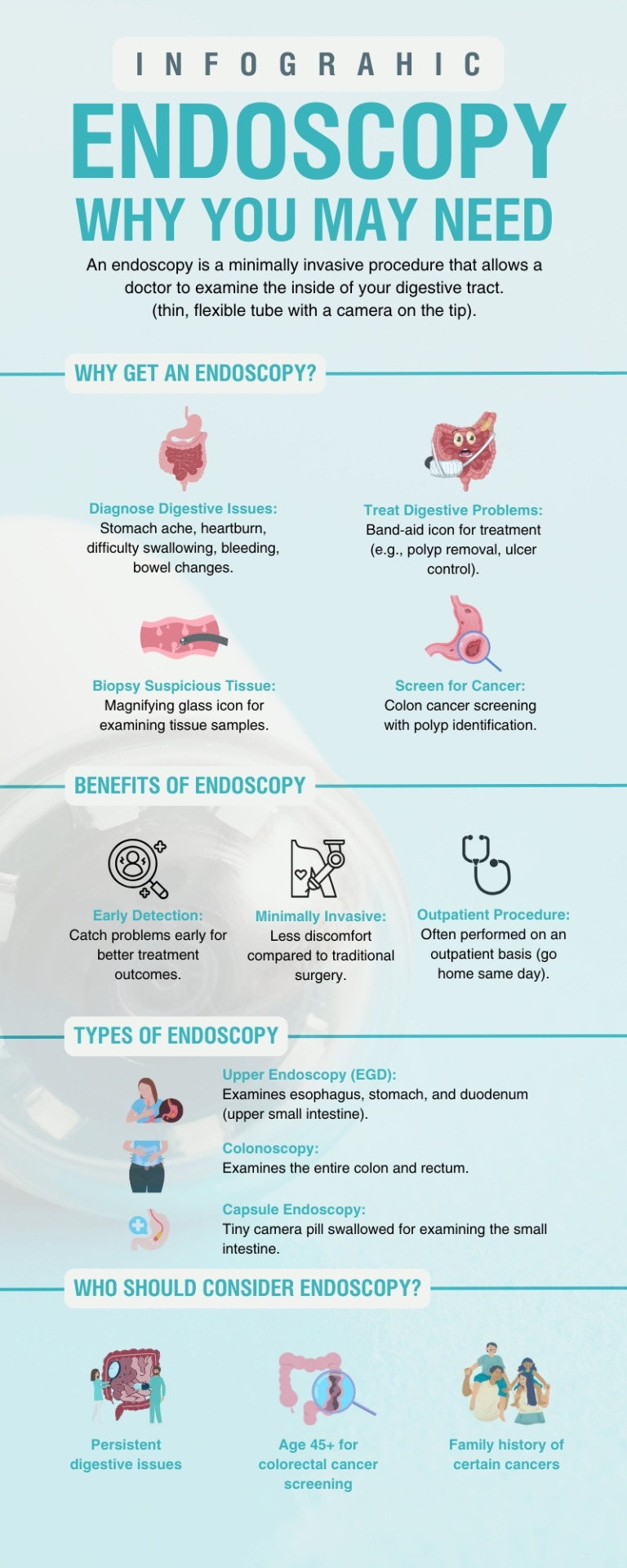#CancerScreening
Explore tagged Tumblr posts
Text
Explore how a Well Woman Health Check can detect cervical, breast, ovarian, and bowel cancers early. Proactive screening leads to better outcomes—read what to expect.
0 notes
Text
#MondayMusings OF AN OLD BROAD | EPISODE 8: COLONOSCOPY TIME! 🏥
Welcome to the eighth episode of “Monday Musings of an Old Broad”, a semi-regular feature.No telling what you will find here, as I ramble on! #MondayMusings OF AN OLD BROAD | EPISODE 8: COLONOSCOPY TIME!🏥 #dogladysden #colonoscopy #healthcheck #cancerscreening👌 If you’re reading this mid-morning on June 2/25, I’m lying sideways on a cold metal slab, with a tube shoved up my ass right now. And…
#MondayMusings#Ageing/Aging#colon cancer#Colonoscopy#Health and wellness#Song Parodies#dogladysden#cancerscreening
0 notes
Text
Exosomes Diagnostic and Therapeutic Market Poised to Grow Owing to Innovation
The Exosomes Diagnostic and Therapeutic Market is experiencing rapid advancement as exosome-based products offer unparalleled precision in disease detection and targeted drug delivery. Exosomes, nanoscale vesicles secreted by cells, function as natural carriers of nucleic acids and proteins, enabling non‐invasive biomarker identification in liquid biopsies and enhancing therapeutic payload delivery across biological barriers. Their biocompatibility and low immunogenicity translate into improved patient safety and efficacy, meeting the urgent need for early cancer diagnostics, neurodegenerative disease monitoring, and personalized treatment regimens.
Get More Insights on Exosomes Diagnostics And Therapeutics Market
https://www.patreon.com/posts/exosomes-market-130078435

#Exosomes#DiagnosticMarket#TherapeuticMarket#BiotechInnovations#LiquidBiopsy#CancerScreening#RNADrugDelivery#CoherentMarketInsights
0 notes
Text

Revolutionize Bladder Cancer Screening with NADAL NMP22 Test!
Take control of your health with the NADAL NMP22 Test, which is a fast, accurate, and non-invasive solution for early bladder cancer detection.
Benefits of NADAL NMP22: ✔️ Rapid results (~15 mins) ✔️ Easy visual interpretation ✔️ Hygienic, non-invasive urine test ✔️ Ideal for early detection and monitoring
Empower faster decisions. Detect early. Act confidently.
🔗 https://poc-diagnostics.co.uk/products/nadal%C2%AE-nuclear-matrix-protein-22-test
#NADALNMP22#BladderCancerTest#EarlyDetection#RapidDiagnosis#POCDiagnostics#PointOfCareTesting#CancerScreening#NMP22#MedicalInnovation#AccurateResults#HealthcareTools
0 notes
Text
Are Smart Implants the Future of Human Health 2025

Are Smart Implants the Future of Human Health 2025
In recent years, the idea of enhancing human health with smart technology has moved from science fiction into real-world innovation. Smart implants—tiny devices placed inside the human body to monitor or improve health—are gaining momentum in both research and clinical applications. In 2025, we stand at the frontier of a health revolution that could change the way we treat diseases, manage chronic conditions, and even prevent medical emergencies before they happen. In this blog, we'll explore what smart implants are, how they work, their benefits and risks, current technologies in 2025, and what the future might hold for this fascinating intersection of biology and technology. What Are Smart Implants? Smart implants are advanced medical devices implanted into the body to collect data, deliver therapies, or interact with biological systems in real time. Unlike traditional implants like hip replacements or pacemakers (which are mostly mechanical or single-purpose), smart implants use sensors, microprocessors, and wireless communication to perform multiple tasks. These devices can: - Monitor physiological signals (e.g., heart rate, glucose levels) - Send alerts or data to healthcare providers - Deliver drugs on-demand - Stimulate nerves or tissues electrically They are usually powered by miniature batteries or even harvest energy from body movement or heat. Key Technologies Driving Smart Implants in 2025 In 2025, several key technological advancements have accelerated the development and adoption of smart implants: 1. Miniaturization and Nanotechnology With nanotechnology, scientists can now design sensors and chips that are incredibly small yet highly functional. This allows implants to be more compact and less invasive. 2. Wireless Communication (5G and Beyond) The emergence of ultra-fast, low-latency communication protocols allows real-time data exchange between implants and healthcare systems, improving monitoring and response times. 3. AI Integration AI-enabled implants can analyze patterns in the body’s data and make intelligent decisions, such as adjusting a dose of insulin automatically or detecting early signs of infection. 4. Biocompatible Materials New materials that don’t trigger immune responses and can last longer in the body have made implants safer and more durable. 5. Energy Harvesting Techniques Some implants now generate their own energy from body heat, motion, or even biochemical reactions, eliminating the need for frequent battery replacements. Real-World Applications of Smart Implants Smart implants are already being used or tested in various medical areas: - Cardiology: Smart pacemakers monitor heart rhythms and adjust stimulation dynamically. Some also alert doctors if an arrhythmia is detected. - Diabetes Management: Continuous glucose monitors (CGMs) and insulin pumps are becoming smarter and more automated. In 2025, we now see closed-loop systems that manage insulin delivery with minimal human input. - Neurology: Brain implants are helping patients with Parkinson’s disease, epilepsy, or spinal cord injuries regain mobility or reduce symptoms. - Orthopedics: Smart knee or hip implants can monitor stress levels and wear, alerting doctors before a failure occurs. - Cancer Detection: Tiny biosensors are being designed to detect cancer biomarkers in real time, allowing for earlier diagnosis and intervention. Benefits of Smart Implants Smart implants offer a wide range of advantages: - Early detection of diseases through continuous monitoring - Personalized treatment, tailored in real-time - Less need for hospital visits, thanks to remote monitoring - Improved outcomes and longer device life due to predictive maintenance - Better quality of life for patients with chronic illnesses For example, a person with heart failure can receive a smart implant that monitors blood pressure and oxygen levels and warns both the patient and doctor before a crisis occurs. This could prevent hospitalization or even save lives.




Risks and Ethical Considerations While smart implants promise a lot, they are not without challenges: 1. Privacy and Security Health data transmitted from the body must be kept secure. Hacking or data leaks could have serious consequences. 2. Invasiveness Implanting devices into the body requires surgery, which carries risks of infection or rejection. 3. Cost and Accessibility These advanced devices may not be affordable for everyone, leading to potential inequalities in healthcare. 4. Data Ownership and Consent Who owns the data generated by an implant? How is it used, and who has access to it? 5. Long-Term Effects Many smart implants are still new, so their long-term impact on health and the immune system is still under research. The Future: A Connected Human Body? Looking ahead, it’s easy to imagine a future where the human body becomes a network of smart devices working together to optimize health. This vision is sometimes referred to as the "Internet of Bodies" (IoB), an extension of the Internet of Things (IoT), where interconnected implants, wearables, and external devices form an ecosystem that constantly communicates. In this scenario, your body might: - Communicate with your doctor 24/7 - Adjust your medications based on real-time stress or hormone levels - Alert emergency services if you’re injured or unconscious - Sync with AI assistants that guide you toward healthier habits This is not science fiction anymore. Several startups and research institutions are working to make this future a reality. Smart Implants and Personalized Medicine Perhaps one of the most exciting aspects of smart implants is their role in personalized medicine. By collecting individualized data, these devices allow doctors to treat patients based on their specific biological responses, rather than averages or generalized protocols. For example, instead of taking the same daily dose of medication, a smart implant might adjust your dosage throughout the day depending on how your body responds to stress, food intake, or activity levels. This level of personalization could improve effectiveness, reduce side effects, and offer patients a more responsive healthcare experience. Final Thoughts As of 2025, smart implants are not only feasible—they’re being used to change lives. These devices combine medicine, engineering, and artificial intelligence into one of the most promising frontiers of modern healthcare. While there are still hurdles to overcome, especially regarding ethics, cost, and long-term safety, the potential is undeniable. We may soon live in a world where our bodies work in partnership with intelligent implants to keep us healthier, longer, and more informed about our well-being than ever before. — For more insight into futuristic medical technology, explore this relevant Wikipedia article: https://en.wikipedia.org/wiki/Implant_(medicine) — You might also like these from our blog: - What If DNA Could Store All Human Knowledge 2025 https://edgythoughts.com/what-if-dna-could-store-all-human-knowledge-2025 - Can Quantum Sensors Revolutionize Brain Imaging 2025 https://edgythoughts.com/can-quantum-sensors-revolutionize-brain-imaging-2025 Read the full article
#20250101t0000000000000#2025httpsedgythoughtscomcanquantumsensorsrevolutionizebrainimaging2025#2025httpsedgythoughtscomwhatifdnacouldstoreallhumanknowledge2025#adoption#arrhythmia#articlehttpsenwikipediaorgwikiimplant#artificialcardiacpacemaker#artificialintelligence#biochemistry#biocompatibility#biologicalsystem#biology#biomarker#biosensor#bloodglucosemonitoring#bloodpressure#bloodsugarlevel#brainimplant#cancer#cancerbiomarker#cancerscreening#cardiacconductionsystem#cardiology#chroniccondition#communication#communicationprotocol#consentwho#continuousglucosemonitor#databreach#diabetes
0 notes
Text
Can a Full Body Cancer Screening Checkup Really Help Save Your Life Through Early Detection?
Early detection is the key to beating cancer. A full body cancer screening checkup can identify warning signs before symptoms appear, increasing the chances of successful treatment. For those seeking reliable Cancer Health Check up in Chennai, Asto Labs offers advanced diagnostic services with expert care. Prioritize prevention and stay one step ahead with regular screenings.

#cancerscreening#earlydetectionsaveslives#cancerhealthcheckup#fullbodycheckup#preventcancer#healthawareness#astolabs#cancercheckupinchennai#stayhealthy#routinehealthcheckup
0 notes
Text
International Women’s Day Celebration
On the occasion of International Women’s Day 08th March, 2025, North East Cancer Hospital and Research Institute (NECHRI), in collaboration with the North East Women Entrepreneurs Association (NEWEA) and Best Solution Room Association (BSRA), hosted a significant event to honour women and girls, aligning with the theme “For All Women and Girls: Rights. Equality. Empowerment.”
Dr. Raj Changkakoty, Director of NECHRI, welcomed the distinguished guests, including the General Secretary of NEWEA, Smt. Sajida Begum and the President of BSRA, Mr. Dhruba Bania, along with a group of inspiring women from the organizations. NECHRI, one of the leading and first private hospitals dedicated to cancer research and treatment in the Northeast region, emphasized the importance of early detection in cancer care. Early diagnosis, they explained, remains the most effective way to fight this serious disease, and this was a central theme throughout the discussions.
The event also featured insightful talks from medical professionals Dr. Abhishek Dewra, ENT Oncologist, NECHRI. Dr. Bhaskar Deka, an anaesthesiologist, NECHRI, shared crucial advice on maintaining proper dietary habits to prevent cancer. Dr. Prandweep Hazarika, Surgical Oncology, NECHRI elaborated on the various causes of cancer, stressing the importance of understanding these factors in relation to one’s lifestyle and environment.
Participants were encouraged to engage in a vibrant Q&A session, addressing various concerns and misconceptions about cancer prevention. The session was concluded with a heartfelt vote of thanks by Dr. D. Choudhury, MPT (Orthopaedics), NECHRI who announced the opening of a free health and screening camp at NECHRI for the women present at the event.
The day concluded with meaningful discussions, empowering women with valuable knowledge about their health, and reinforcing the significance of awareness and early intervention in the fight against cancer. This event served as a reminder of the importance of women’s rights, equality, and empowerment in the healthcare space.
#mammography#cancerawareness#cancertreatment#cancer treatment#breast cancer#cancerawarenesscamp#cancercare#nechri#cancerscreening#guwahati
1 note
·
View note
Text
The Future of Cancer Screening: AI at the Forefront
Enhanced Accuracy: AI-powered tools are revolutionizing cancer screening by increasing accuracy. Machine learning algorithms can analyze vast datasets from medical imaging, genetic data, and patient histories, detecting early-stage cancer signs that may be overlooked by human clinicians.
Early Detection: AI can identify subtle patterns and anomalies that are difficult to spot, enabling early cancer detection. Early intervention leads to better patient outcomes and higher survival rates.
Reduced False Positives and Negatives: One of AI’s key benefits is reducing the occurrence of false positives and false negatives in cancer screenings. AI systems are highly sensitive, improving diagnostic reliability and minimizing unnecessary procedures or missed diagnoses.
Faster Diagnosis: AI accelerates the diagnostic process by automating image analysis and detecting patterns quickly. This speeds up the overall screening process, allowing for faster diagnosis and earlier treatment.
Personalized Screening: AI can tailor screening protocols based on individual risk factors, such as genetic predispositions, lifestyle, and environmental factors. This personalized approach enhances the effectiveness of early detection and prevents over-screening.
Wide-Scale Implementation: AI-powered screening tools have the potential to be scaled globally, offering access to high-quality screening in underserved and remote areas where healthcare resources are limited.
Integration with Other Technologies: AI can work alongside other diagnostic tools, such as liquid biopsies, to detect cancer markers in blood samples, improving accuracy and enhancing early detection methods.
Continuous Learning: As AI systems process more data, their diagnostic capabilities continually improve. The longer they are in use, the more accurate they become, adapting to new trends in cancer diagnosis and treatment.
Cost Efficiency: AI can reduce healthcare costs by streamlining the screening process, reducing the need for invasive tests, and increasing diagnostic efficiency.
AI-powered applications can help individuals and dermatologists identify skin changes that might require further investigation. This enables the early detection of cancer and prompt biopsy or removal of suspicious growths. Leading to better treatment outcomes.
Revolutionizing Cancer Care: Ultimately, AI will not only improve cancer screening but also contribute to more personalized treatment strategies, better patient monitoring, and overall improved outcomes.
#AIinHealthcare#CancerDetection#AIinOncology#CancerScreening#EarlyDiagnosis#MedicalAI#AIRevolution#MachineLearning#HealthcareInnovation#PrecisionMedicine#FutureOfMedicine#AIAdvancements#CancerPrevention#SmartHealthcare#HealthTech#DigitalHealth
0 notes
Text
0 notes
Text

You are #stronger than you realize, braver than you #believe, and capable of overcoming any obstacle. At Basavatarakam Indo American Cancer Hospital & Research Institute, we understand that #cancer is not just a medical challenge—it’s a test of resilience, courage, and faith.
With #advancedtreatments, personalized #care, and unwavering support from our team of specialists, we are here to help you every step of the way. Together, let’s turn hope into #healing and challenges into victories.
Reach out to us today for expert care: 040 - 2355 1235 / 7729 800 800
#BasavatarakamIndoAmericanCancerHospital#IndoAmericanHospitalHyderabad#CancerHospitalsHyderabad#Induscancerhospital#cancerhospital#Basavatarakam#cancercare#indoamerican#oncology#Basavatarakamcancerhospital#cancer#cancerscreening#IndoAmericanCancerHospital#CancerTreatment#bestoncologists#best cancer hospitals in india#indo american cancer hospital#basavatarakam hospital#best cancer hospital#best cancer specialist in india#best cancer treatment in india#basavatarakam cancer hospital#indo american hospital#basavatarakamcancerhospital basavatarakam
0 notes
Text
Unlocking Health: Comprehensive Guide to Cancer Screening Tests

Unlocking Health: Comprehensive Guide to Cancer Screening Tests
Exploring the Importance of Regular Cancer Screenings and Preventive Measures
Cancer is a formidable adversary, but arming ourselves with knowledge and proactive measures can make all the difference. In this comprehensive guide, we delve into the world of cancer screening tests, exploring various types and the significance of regular screenings. Understanding what screening tests entail is crucial in the fight against cancer.
Cancer screening is a pivotal aspect of healthcare, aiming to detect abnormalities before symptoms arise. But what exactly is a screening test? A screening test is a medical examination or test performed to detect potential health disorders or diseases in people who are asymptomatic. In the case of cancer, these tests play a crucial role in early detection, significantly improving treatment outcomes.
Types of Cancer Screening Tests
Mammography: Primarily for breast cancer, especially in women over 40.
Colonoscopy: Identifying colorectal cancer or polyps in the colon.
Pap Smear: Focused on cervical cancer, especially in women.
HPV DNA Test: Detection of human papillomavirus.
Low Dose CT: Prominently used for detection of lung cancer.
Occult Blood Stool Check: Focuses on identification of colorectal cancer.
The Significance of Regular Screenings
Regular cancer screenings are vital because they can identify abnormalities before symptoms manifest, enabling early intervention. Early detection often leads to more effective and less invasive treatment options, significantly improving the chances of survival.
Preventive Measures Through Screening:
Understanding what is screening test and embracing preventive screening measures empower individuals to take control of their health. By undergoing regular screenings, individuals can actively participate in their well-being, contributing to the prevention and early detection of cancer.
Conclusion
In conclusion, the journey to combat cancer begins with awareness, education, and regular screenings. Stay informed, prioritize your health, and remember – early detection saves lives. As we strive for a healthier future, let’s take the first step together.
Empower your health journey with Vydehi Cancer Center – your ally in comprehensive healthcare solutions, ensuring a proactive approach to screenings and well-being.
#vydehicancercenter#cancertreatment#vydehicancercenterbangalore#oncology#cancersurvivor#treatment#CancerScreening#Cancerscreeningtest
0 notes
Text
WINNIPEG FREE PRESS -- Shared Health responsible for sorry state of PET scans
BY SANDOR DEMETER (FGJ '23) -- Medical isotopes produced by cyclotrons are injected into patients for positron emission tomography, or PET imaging. PET images are used to diagnose cancer, demonstrate how far the cancer has spread (which stage it is), assess how well patients respond to therapy, and to reveal if their cancer has come back later. READ MORE.
0 notes
Text
Fine needle aspiration (FNA) is a minimally invasive medical procedure used to collect a sample of cells or fluid from a suspicious lump or area in the body. The sample is then examined under a microscope to help diagnose various conditions, including cancer.
FNA is performed for several reasons:
Diagnosis of cancer: FNA is commonly used to determine whether a lump or mass is cancerous or benign (non-cancerous). It can be used on various parts of the body, such as the breast, thyroid, lymph nodes, and soft tissues.
Evaluation of abnormal cells: Even if a lump is not suspected to be cancerous, FNA can help identify the cause of abnormal cells or inflammation. This can be useful in diagnosing infections or other non-cancerous conditions.
Guiding treatment decisions: In cases where cancer is already diagnosed, FNA can help determine the specific type of cancer and its characteristics. This information is crucial for selecting the most appropriate treatment options.
Monitoring response to treatment: FNA can also be used to assess how well a cancer is responding to treatment by monitoring changes in the cells over time.
.
.
.
Meet Dr. Hitendra K. Garg, DM (GASTROENTEROLOGY), MD(MEDICINE)
Senior Consultant - Hepatology, Gastroenterology & Liver Transplant
.
.
.
Schedule a consultation at Indraprastha Apollo Hospitals
Visit: www.drhitendrakgarg.com
For Consultation : Dr. Hitendra K Garg
📲 8920361841, 8920632657
.
.
.
#Gastroenterologist#drhitendragarg#bestgastroenterologistindelhi#FineNeedleAspiratio#FNAProcedur#HealthAwareness#CancerDetection#NonInvasiveProcedure#MedicalTests#Healthcare#Pathology#MedicalScience#EmpowerYourHealth#FNAChallenge#KnowYourBody#CancerScreening#QuickDiagnosis#NoCutsNoScars#HealthcareHero#MedicalMythBusters#ScienceSavedMyLife#health
0 notes
Text
What Are the Common Signs That Indicate the Need for Cancer Screening?
Early detection can make a huge difference in cancer treatment and recovery. Some common signs that indicate the need for a Cancer Checkup in Chennai include unexplained weight loss, persistent fatigue, lumps or swelling, prolonged cough, abnormal bleeding, and changes in skin or bowel habits.
At Asto Labs, we provide comprehensive cancer screening services to help detect potential risks at an early stage. Regular screenings can help in timely diagnosis and better treatment outcomes. Don’t wait for symptoms to worsen—book your cancer checkup in Chennai today and take charge of your health!

#cancerscreening#earlydetection#cancercheckup#astolabs#healthcheckup#cancerawareness#stayhealthy#preventcancer#medicaltesting#cancerprevention
0 notes
Text
Shedding Light on Pancreatic Cancer: Understanding, Symptoms, Diet, and Treatment at Valentis Cancer Hospital in Meerut
Pancreatic cancer has emerged as one of the most challenging diseases of our time, with its incidence on the rise. In this blog, we delve into the complexities of pancreatic cancer, exploring why its cases are increasing, common symptoms, dietary considerations, and the advanced Pancreatic Cancer Treatment in Meerut available at Valentis Cancer Hospital. Understanding Pancreatic Cancer:
Pancreatic cancer occurs when abnormal cells in the pancreas grow uncontrollably, forming tumors. This type of cancer is often diagnosed at an advanced stage, making it difficult to treat. Factors contributing to the high incidence of pancreatic cancer include smoking, obesity, family history of the disease, and certain genetic mutations.

Why Pancreatic Cancer Cases are Rising:
Several factors contribute to the increasing prevalence of pancreatic cancer. Lifestyle choices such as smoking, excessive alcohol consumption, and a diet high in processed foods and red meat have been linked to an elevated risk of developing pancreatic cancer. Additionally, the aging population and improved diagnostic techniques may also contribute to the rising number of cases.
Common Symptoms of Pancreatic Cancer:
Pancreatic cancer often presents with nonspecific symptoms in its early stages, which can make diagnosis challenging. However, as the disease progresses, symptoms may include abdominal pain, jaundice, unexplained weight loss, loss of appetite, nausea, and changes in bowel habits. Recognizing these symptoms and seeking prompt medical attention is crucial for early detection and improved outcomes.
Dietary Considerations for Pancreatic Cancer:
While there is no specific diet proven to prevent or cure pancreatic cancer, making healthy dietary choices can help support overall health and well-being. A diet rich in fruits, vegetables, whole grains, lean proteins, and healthy fats can provide essential nutrients and antioxidants to boost the immune system and aid in cancer prevention. Additionally, avoiding or limiting alcohol, processed foods, sugary snacks, and red meat may reduce the risk of developing pancreatic cancer.
Valentis Cancer Hospital: Leading the Way in Pancreatic Cancer Treatment in Meerut
Valentis Cancer Hospital is at the forefront of pancreatic cancer treatment, offering comprehensive care and advanced treatment options to patients. With a multidisciplinary team of oncologists, surgeons, radiologists, and supportive care specialists, Valentis provides personalized treatment plans tailored to each patient's unique needs.
Advanced treatment options for pancreatic cancer at Valentis include surgery, chemotherapy, radiation therapy, targeted therapy, immunotherapy, and palliative care. The hospital's state-of-the-art facilities and compassionate approach ensure that patients receive the highest quality care and support throughout their cancer journey.
Conclusion:
Pancreatic cancer remains a formidable challenge, but with increased awareness, early detection, healthy lifestyle choices, and access to advanced treatment options like those available at Valentis Cancer Hospital in Meerut, there is hope for improved outcomes. By understanding the risk factors, recognizing symptoms, making healthy dietary choices, and seeking timely medical attention, we can work together to combat pancreatic cancer and improve the lives of those affected by this devastating disease.
#PancreaticCancer#CancerAwareness#PancreaticCancerTreatment#ValentisCancerHospital#Meerut#Oncology#CancerResearch#CancerTreatment#CancerPrevention#HealthyLifestyle#EarlyDetection#DietAndNutrition#MedicalTreatment#CancerSupport#Healthcare#Wellness#Oncologists#RadiationTherapy#Chemotherapy#Immunotherapy#PalliativeCare#CancerSurvivors#AwarenessCampaign#MedicalFacilities#PatientCare#HealthEducation#CancerDiagnosis#RiskFactors#Symptoms#CancerScreening
0 notes
Text

Endoscopy: Why You May Need - Infographic
Your doctor might recommend that you undergo an endoscopy. This procedure is usually done to diagnose or treat digestive issues, for cancer screening, or to collect a sample for biopsy. This medical equipment is beneficial for the proper diagnosis of digestive issues and the early detection of cancer. It is also an outpatient procedure, meaning you can go home the same day. Visit this page for more details on the procedure, benefits, and expected cost of endoscopy in Singapore.
#EndoscopyInsights#EndoscopyExplained#EndoscopyInfographicGuide#DigestiveCare#DigestiveWellness#CancerScreening
0 notes